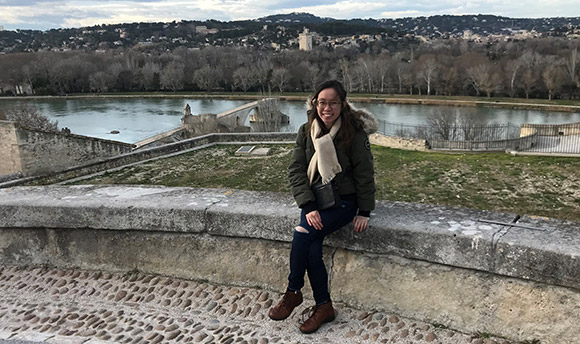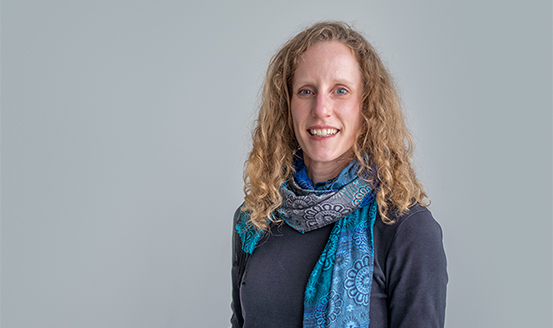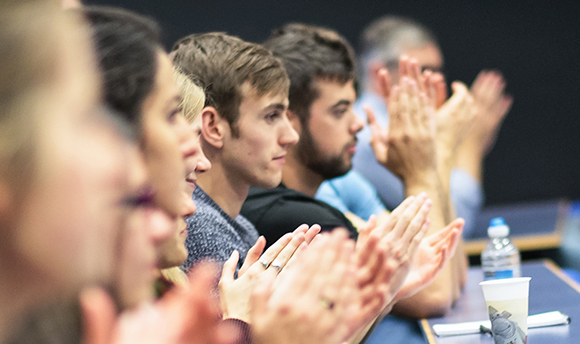Master of Occupational Therapy (MOccTh)
This four-year integrated undergraduate master’s course will give you the expertise, people skills and conceptual understanding that you will need to work as an occupational therapist. This course is responsive to the demands of the health and social care sector and there are practice-based learning opportunities across the course to integrate theory, knowledge and practice.
Why QMU?
- Our graduates are recognised by employers as being independent learners who can address problems creatively.
- You will be taught by highly experienced lecturers who are well respected in their fields. They engage in innovative research, contribute to knowledge development and translation and have strong personal links with practice settings.
- We have small class sizes, therefore our staff will really get to know you. We genuinely care about your journey and will recognise your strengths and where you most need support.
- In the Times and Sunday Times Good University Guide 2022, we are ranked in the top 20 UK universities for subjects allied to medicine (19th out of 82).
On this course you will:
- Explore how to provide practical support to empower people, facilitate health and wellbeing, and help identify and respond to barriers that prevent people from doing what really matters to them.
- Learn a wide range of transferable personal and professional skills, understanding why and how people engage in occupations and what might disrupt patterns of occupation; critically engaging with knowledge and evidence that informs the profession; and collaborating with services to address needs of their communities.
- Develop an appreciation of how individual’s lives can be shaped by society including environments, history, or systems and how these factors can impact health.
- Learn through a variety of approaches, and practical placements are a key element of the course, giving you the opportunity to translate your learning into practice and to work with a wide range of services and populations.
Living, not existing, that is a primary objective for the profession. As an occupational therapist, you will work with individuals, groups and communities to foster participation in the aspects of life that people need, want and have to do. This course is your first step towards a rewarding and diverse healthcare career with excellent employment prospects.
This is a four year integrated undergraduate master’s course. Students commence the course with a view to graduating with a Master of Occupational Therapy (MOccTh) in four years. The majority of modules are taught alongside postgraduate students studying on the accelerated MSc Occupational Therapy (Pre-Registration) course. There is an option for students to transfer to a BSc (Hons) route at the end of year two and they will still be eligible to apply for registration with the HCPC as an occupational therapist.

Year One
You will:
- Complete a six-week placement
- Study a range of modules that provide you with the knowledge and concepts that are foundational to occupational therapy practice.
- Be introduced to different perspectives on occupation and its centrality in everyday life, as well as its relationship with health and wellbeing.
- Develop skills in communication, information technology and academic study skills.
Modules
- Foundations of Occupational Therapy Practice
- Personal Academic and Professional Development
- Preparation for Practice-Based Learning
- Practice-based Learning 1
- Health Wellbeing and Participation in Occupation
- Finding, Evaluating and Consuming Knowledge
Year Two
You will:
- Complete a six-week placement
- Focus on occupational therapy processes (assessment, goal setting, intervention, evaluation) with individuals and communities.
- Explore disruption and deprivation of occupation (personal and contextual factors), across the life span.
- Be introduced to aspects of public health and health promotion. This will be revisited in the later years.
Modules
- Assessing, Analysing and Evaluating Occupational Needs, Performance and Participation
- Developing Goals to Meet Occupational Needs
- Facilitating Learning within Occupational Therapy
- Developing, Delivering and Evaluating Occupation-Focused Interventions
- Practice-based Learning 2
A learner who achieves 60% average in SCQF level 8 modules can remain on the MOccTher route. They may choose the BSc (Hons) route even if the 60% average has been achieved. All learners will be supported in making their decisions.
Year Three
You will:
- Complete a nine-week placement
Critically explore issues related to practice, theories and systems. - Study the social construction and complexity of knowledge and practice.
- Develop further understanding of leadership, practice development and innovation in thinking and action.
- Have the opportunity (subject to availability) to undertake practice-based learning at an overseas university with which we have partnership agreements. For more information, see www.qmu.ac.uk/study-here/international-students/exchanges-and-study-abroad/
Modules
BSc (Hons) route:
- Elective Module Occupational Therapy: Contexts, Collaborations and Communities
- Practice-based Learning 3
- Evaluating Occupational Therapy Practice
MOccTh route:
- Elective Module
- Occupational Therapy: Contexts, Collaborations and Communities
- Practice-based Learning 3
- Evaluating Occupational Therapy Practice
- Research Methods
Year Four
You will:
- Complete a 10-week placement
- Consolidate your master’s-level learning opportunities and build upon your previous knowledge and practice experiences in diverse and changing contexts.
- Participate in community partnership working, project development, leading to the completion of a dissertation, and deepening your leadership skills.
- Work alongside other health professionals - Interprofessional learning and working is an integral part of professional practice and will be incorporated throughout the course.
- Have the opportunity (subject to availability) to undertake practice-based learning at an overseas university with which we have partnership agreements. For more information, see www.qmu.ac.uk/study-here/international-students/exchanges-and-study-abroad/
Modules
BSc (Hons) route:
- Health Society and Occupation
- Practice-based Learning 4
- Dissertation Project
MOccTh route:
- Health Society and Occupation
- Practice-based Learning 4
- Transforming Occupational Therapy Practice
- Dissertation Project
Entry requirements
Scottish Higher: Standard - BBBB, Minimum -BBCC
A Level: BCC
Irish Leaving Certificate: H2 H2 H3 H3
International Baccalaureate: 28 points
International: IELTS score of 6.0 with no element below 6.0
Required subjects: English is preferred, or a discursive subject such as History or Sociology at Higher, A Level or equivalent. English and Maths at Nat 5/GCSE.
Mature/Access: Related Access course or HNC may be considered for Year One, see: www.qmu.ac.uk/college-qualifications
We welcome applications from mature students with other relevant qualifications and experience.
Direct Entry:
Year Two
- HNC Occupational Therapy Support with B in the graded unit, plus successful fieldwork placement, when places are available. Other relevant qualifications may be considered for entry to Year One.
- Direct entrants who wish to undertake the Masters option will be required to achieve an additional 20 credits (one extra module) in year 2. This will be negotiated with each student and arranged by the programme team.
Other requirements: A satisfactory criminal records check is required. You will be required to attend an interview as part of the application screening process. Some experience working or volunteering with different groups of people is required (ie older or younger people with different health or life situations).
Placements
A practice placement is offered in each year.
Placements provide the opportunity to integrate practice with theory.
You will work with individuals, groups and communities in a variety of settings across Scotland.
QMU manages the sourcing and allocation of full-time placements for each student.
Placements take place across Scotland. It is therefore likely that students will have to relocate for at least some of their practice based learning unless they have individual requirements (eg specific health needs or caring responsibilities) that mean they must remain in a specific location. The additional costs associated with placement travel and accommodation are the responsibility of the student. Students who receive SAAS funding may be able to claim for some of these expenses to be reimbursed.
Teaching, learning and assessment
Our course is designed to allow you to get to know your peers and our staff, and build positive academic and professional relationships. Teaching and learning methods include interactive lectures, seminars, practical workshops, group work and self-directed learning. Outside timetabled sessions, you will be expected to continue learning through independent study. For assessment, we focus less on written examinations and more on demonstrations of knowledge and understanding: reports, essays, presentations, oral and practical examinations, and creative assessments.
Exchange opportunities
Yes. See 'Year Three' tab for more information.
Careers
The degree opens doors to a rewarding and stimulating career in NHS trusts, local authority social care departments, voluntary organisations, private practice, industry, and your skills will support entrepreneurial initiatives. Your work as an occupational therapist may not necessarily be in a medical setting, hospital or clinic. Many of our graduates pursue the exciting diversity of employment opportunities in the community, including within the voluntary sector or primary care. The course will enable you to work as part of a health and social care team. You will develop leadership and partnership working skills and you may wish to engage with further professional development or higher level academic learning opportunities.
Professional registration/accreditation
This course is approved by the HCPC and the Royal College of Occupational Therapists. It is recognised by the World Federation of Occupational Therapists (WFOT). Graduates are eligible to apply for registration with the HCPC.
Teaching staff, class sizes and timetables
Our course is small by design, allowing you to get to know your peers and our staff, and build positive academic and professional relationships.
For more information, please see ‘How we teach and how you’ll learn’.
Awarding body
QMU. For more information, please see the the 'External review' section on our ‘How we teach and how you’ll learn’ page.
More information
For more information on this course please email:MOccTher@qmu.ac.uk
View Open Day presentation
View specialist facilities film
Please note:
- The modules listed here are correct at time of posting (Feb 2022) but may differ slightly to those offered in 2023. Please check back here for any updates.
- The delivery of this course is subject to the terms and conditions set out in our 2023/24 Entry Terms and Conditions (Undergraduate).
- Teaching staff may be subject to change.









